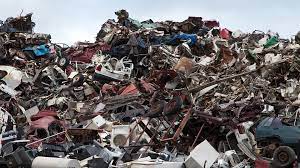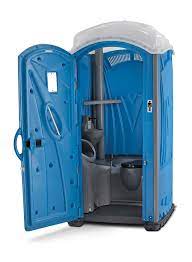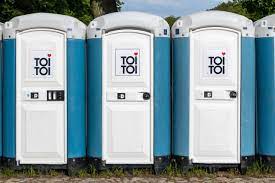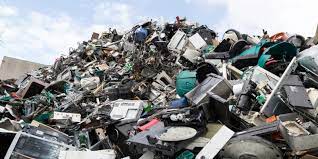
Are you looking to start a profitable business in Nigeria? Have you considered scrap metal collection? Nigeria is a major producer of scrap metal and is in need of reliable scrap metal collectors who can provide a valuable service to the country.
This blog post will explain how you can start a lucrative scrap metal collection business in Nigeria, including the necessary steps you need to take and tips on how to be successful.
So, if you are ready to take the plunge and become a scrap metal collector in Nigeria, then read on and get started!
Why Start a Scrap Metal Collection Business in Nigeria?
Scrap metal collection is a thriving industry in Nigeria that offers enormous potentials for entrepreneurs looking for lucrative business opportunities. Nigeria is blessed with an abundance of natural resources, including metals like copper, aluminum, brass, and iron, which can be found in old buildings, abandoned vehicles, electronic gadgets, and appliances.
By starting a scrap metal collection business, you can tap into this resource and turn it into a profitable venture. Moreover, the high demand for scrap metal, both locally and internationally, ensures a steady flow of revenue for the business. Scrap metal is used in various industries, including construction, manufacturing, and automobile, among others.
Additionally, the business provides a means of employment and income for the locals who can source for the materials. Finally, by collecting scrap metal, you also contribute to environmental sustainability by recycling and reusing resources that would otherwise be discarded, reducing the carbon footprint, and promoting the circular economy.
In summary, the scrap metal collection business is a viable opportunity for entrepreneurs to tap into the abundant resources in Nigeria, create employment, generate income, and contribute to environmental sustainability.
Market Research and Analysis
Before starting a scrap metal collection business in Nigeria, conducting thorough market research and analysis is essential. This step helps you understand the potential demand and competition in the industry.
Begin by identifying potential buyers for scrap metal, such as metal recyclers, construction companies, and manufacturing plants. Analyze their requirements, prices they offer, and their current suppliers. This information will give you insights into the market dynamics and help you position your business competitively.
Next, assess the competition in your target area. Identify other scrap metal collection businesses and determine their market share, pricing strategies, and customer base. This analysis will enable you to identify gaps in the market that you can leverage.
Additionally, understanding the types of scrap metal in demand and their respective prices is crucial. Conduct research on international and local metal markets to stay updated on the current trends and prices. This will help you make informed decisions when negotiating prices with buyers and managing your inventory.
Moreover, consider conducting surveys or interviews with potential customers to understand their needs, preferences, and challenges. This will help you tailor your services to meet their requirements effectively.
By investing time in comprehensive market research and analysis, you will be better equipped to make informed decisions, identify opportunities, and differentiate your scrap metal collection business in Nigeria.
Legal Requirements and Licensing
Before starting a scrap metal collection business in Nigeria, it is crucial to understand the legal requirements and obtain the necessary licenses. This ensures that your business operates legally and avoids any potential legal issues in the future.
Firstly, it is important to register your business with the Corporate Affairs Commission (CAC) in Nigeria. This involves choosing a business name, completing the necessary registration forms, and paying the required fees. Registering your business not only makes it official, but it also helps establish your credibility in the market.
In addition to registering your business, you may need to obtain specific licenses or permits from relevant government agencies. This may include a scrap metal dealer license, waste disposal license, or environmental permit, depending on the nature of your business activities. These licenses ensure that your business complies with environmental regulations and practices proper waste management.
Furthermore, it is essential to familiarize yourself with the laws and regulations governing the scrap metal industry in Nigeria. This includes understanding laws related to buying and selling scrap metal, transportation regulations, and safety guidelines for handling and storing scrap metal.
By adhering to the legal requirements and obtaining the necessary licenses, you can protect your business and avoid any legal complications. It is advisable to consult with legal experts or engage the services of a lawyer experienced in the scrap metal industry to ensure compliance with all legal obligations.
Business Plan and Financing
Before launching a scrap metal collection business in Nigeria, you must first create a solid business plan that outlines the essential aspects of your business. A well-prepared business plan will help you identify your business objectives, strategies, marketing plan, and financial projections.
One of the critical components of your business plan is financing. Depending on the size of your business, you will need to determine how much startup capital is required to cover essential expenses such as purchasing a vehicle for transportation, equipment for processing, and rental space for storage. Additionally, you may need to hire a team of workers to help you with the collection and processing of scrap metal.
You can fund your business through various means, including personal savings, business loans from financial institutions, venture capital, crowdfunding, or angel investors. Research various funding options and identify the ones that suit your business needs and financial capabilities.
When it comes to financing, it's essential to keep track of your financial records to understand how much profit your business is making and how much you're spending. This will help you make informed decisions that will help your business grow and thrive.
Finding and Collecting Scrap Metal
Finding and collecting scrap metal is a crucial aspect of running a successful scrap metal collection business in Nigeria. To start, it is important to establish a network of reliable sources for obtaining scrap metal.
This can include individuals, businesses, and even local communities that generate a significant amount of metal waste. Networking with construction companies, manufacturing plants, and auto repair shops can provide a consistent supply of scrap metal.
Once you have identified potential sources, it is essential to develop a system for efficiently collecting the scrap metal. This can involve investing in appropriate transportation, such as trucks or vans, and hiring skilled workers to assist with the collection process. It is important to establish a regular schedule for collecting the scrap metal to ensure that you do not miss out on any opportunities.
Additionally, it is crucial to educate yourself and your employees on the different types of scrap metal and their respective values. This knowledge will help you in identifying valuable metals and negotiating prices with potential sellers. In some cases, you may even need to offer incentives to encourage individuals or businesses to sell their scrap metal to you.
By focusing on finding and collecting scrap metal, you can build a reliable supply chain and establish your business as a trusted partner in the scrap metal industry. Remember to prioritize relationships with suppliers, as well as consistently staying up-to-date with market trends and prices. This will ensure the long-term success and profitability of your scrap metal collection business in Nigeria.
Sorting and Processing Scrap Metal
Once you have collected a sufficient amount of scrap metal, the next step is to sort and process it. Sorting the scrap metal is crucial as it helps in identifying the different types of metals and their potential value. Common types of scrap metal include aluminum, copper, steel, brass, and iron.
First, separate the metals based on their magnetic properties. Use a magnet to determine if the metal is ferrous or non-ferrous. Ferrous metals contain iron and are magnetic, while non-ferrous metals do not contain iron and are not magnetic.
After sorting, you can further process the scrap metal. This involves cleaning the metal to remove any impurities such as dirt, paint, or rust. Use wire brushes, sandpaper, or chemical solutions to clean the metal. Once the metal is clean, you can cut, crush, or shred it to prepare it for sale.
Consider investing in equipment such as a baler, shearing machine, or crusher to help with processing the scrap metal more efficiently. These machines can be costly, but they will save you time and labor in the long run.
Remember to practice safety measures while handling scrap metal. Wear protective gear such as gloves, goggles, and boots to protect yourself from any sharp or hazardous materials. Additionally, be aware of any environmental regulations or guidelines in regards to handling and disposing of scrap metal waste.
Sorting and processing scrap metal is a vital step in maximizing your profit potential. By correctly identifying and preparing the metals for sale, you can ensure that you are getting the best price for your scrap metal collection.
Selling and Marketing Your Scrap Metal
Once you have collected and processed your scrap metal, the next step is to sell and market it effectively to maximize your profits. There are several strategies you can employ to ensure success in this area.
Firstly, build a network of potential buyers such as local scrapyards, metal recycling companies, and manufacturing industries that require raw materials. Attend industry events, trade shows, and business networking meetings to connect with potential customers.
Additionally, use online platforms to market your scrap metal collection business. Create a website or social media pages where you can showcase the types of scrap metal you have available for sale, as well as the quantities and prices. Utilize online marketplaces and classified ads websites to reach a wider audience.
Consider offering competitive prices and discounts to attract customers. Develop relationships with your buyers, providing excellent customer service and ensuring timely delivery of scrap metal. Word-of-mouth recommendations can greatly contribute to the growth of your business.
Furthermore, explore export opportunities to increase your customer base. Research and comply with the export regulations and requirements of the countries you wish to export to.
Lastly, continually assess the market demand and adjust your marketing strategies accordingly. Stay updated on market trends, pricing fluctuations, and changes in demand for specific types of scrap metal. By staying flexible and proactive, you can ensure that your scrap metal collection business remains competitive and profitable.
Challenges and Risks
While starting a lucrative scrap metal collection business in Nigeria can be a profitable venture, it is important to be aware of the challenges and risks that come with it. One of the main challenges you may face is competition. As the scrap metal industry is already well-established in Nigeria, there may be other collectors and buyers in your area. You will need to find a way to differentiate yourself from the competition and attract customers.
Another challenge is the fluctuating price of scrap metal. The value of scrap metal can change frequently due to market demand and other factors. This can make it difficult to accurately price your scrap metal and may affect your profit margins.
Health and safety risks are also a concern in the scrap metal collection business. Working with heavy machinery and potentially hazardous materials poses a risk of accidents and injuries. It is important to implement strict safety protocols and provide appropriate training for yourself and any employees you may have.
Lastly, theft and vandalism can be a risk in the scrap metal industry. Since scrap metal has value, there is a possibility of theft from your collection sites or during transportation. It is crucial to invest in security measures, such as surveillance cameras and secure storage facilities, to mitigate this risk.
By being aware of these challenges and risks, and taking appropriate measures to address them, you can overcome obstacles and build a successful scrap metal collection business in Nigeria.























